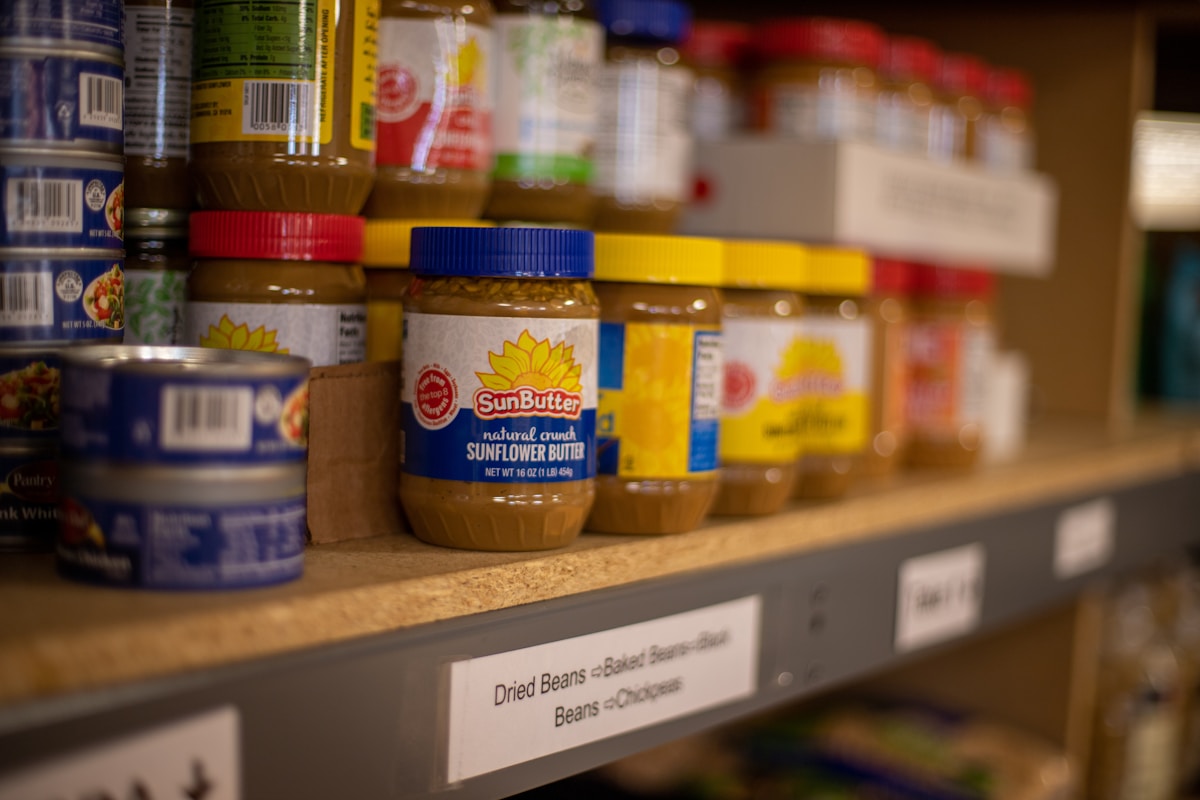Let's talk about storing food! Proper food storage is crucial for maximizing its shelf life, maintaining its flavor, and preserving its nutrient content. But navigating the fridge and pantry can be tricky. What goes where? And how does storage impact the quality of our food?
PANTRY ESSENTIALS
- Dry goods: Grains like rice, pasta, and cereal; beans and legumes; dried fruits; baking ingredients; canned goods; and shelf-stable snacks.
- Nuts / seeds: Nuts can keep for up to four months at room temperature...but nuts and seeds that aren't going to be consumed in a few months should be stored in the refrigerator, where they will last up to a year!
- Root vegetables: Potatoes, onions, garlic, carrots, beets, and turnips.
- Some fresh vegetables: bananas and avocados
- Squashes: Winter varieties like acorn, butternut, and spaghetti squash.
- Vinegars: Apple cider vinegar, white vinegar, and balsamic vinegar.
- Oils: Olive oil, vegetable oil, and coconut oil.

- Fresh fruits and vegetables: Berries, apples, citrus fruits, leafy greens, broccoli, cauliflower, and carrots.
- Dairy products: Milk, yogurt, cheese, and butter.
- Eggs: Raw or cooked.
- Leftovers: Cooked meat, poultry, fish, and vegetables.
- Unopened condiments: Mayonnaise, ketchup, mustard, and salad dressing.
- Organic nut butter: Unprocessed, natural peanut butter (like other nut butters) should be kept in the refrigerator if it isn't going to be consumed in a matter of a few weeks. At room temperature, the oils will separate and can become rancid, and the peanut butter will spoil far more quickly than if you store it in the refrigerator. However, refrigeration will also make the peanut butter hard and difficult to spread, so remove the jar roughly an hour before you plan to use it, if possible.

WHY IT MATTERS
The enzymes naturally present in food can break down its components, impacting its flavour and texture. Refrigeration slows down this process, helping food to retain its desired characteristics.
- Temperature: Heat and light accelerate nutrient degradation. The fridge provides a cool, dark environment that slows down this process, especially for vitamins like A, C, and B-complex.
- Oxygen exposure: Dry goods like grains and nuts can become rancid if exposed to air for long periods. Storing them in airtight containers helps maintain their freshness and flavor.
- Moisture: Excess moisture can lead to mold growth and bacterial contamination. Fresh produce should be stored in the crisper drawers, which maintain optimal humidity levels.

TIPS FOR OPTIMAL FOOD STORAGE
- Organize your fridge and pantry: Group similar items together and label containers for easy identification.
- Rotate your stock: Use the FIFO (First In, First Out) method to ensure older items get used first.
- Store food in appropriate containers: Use airtight containers for dry goods, wrap fresh produce loosely in plastic wrap or store them in breathable bags, and use proper storage containers for leftovers.
- Freeze excess food: This is a great way to extend the shelf life of food and prevent spoilage.
NORTHWORTHY ITEMS THAT MIGHT COME AS A SHOCK...

STORING OILS....
While we are talking about storage - here is a quick tip regarding storing oils:
- DARK STORAGE CONTAINER! Use a dark-colored glass bottle to protect the oil from light, which can break down its nutrients and flavor compounds.
- STORE AWAY FROM HEAT! Store your olive oil away from the stove or other heat sources, as heat can accelerate its degradation.
